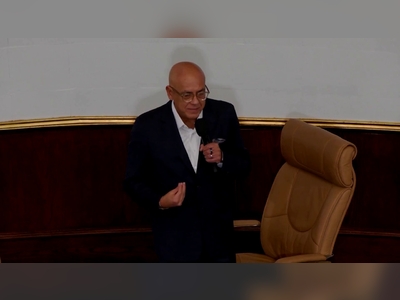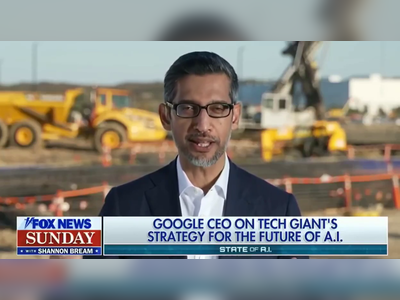
EQ: Why leaders are looking for 'emotional intelligence'
Workers are trained to trumpet technical skills and personal achievements on their resumés, and talk them up in job interviews. However, to succeed at work, either personally or as part of a team, an entirely different skill set is coming to the fore.
Leaders are increasingly looking for ‘emotional intelligence’, also known as ‘EQ’. This range of competencies encompasses our ability to understand and manage our own and others’ feelings, then use this knowledge to build positive, productive connections.
“Fundamentally, work is about the quality of our relationships,” says UK-based Amy Bradley, an adjunct professor of management and leadership at Hult International Business School in Massachusetts, and author of The Human Moment. “Work gets done through people, and if you're unable to work with your own and other’s emotions, it becomes very difficult to get things done productively and sustainably.”
“How you deal with conflict and setbacks, how you encourage people when they’re down, your ability to negotiate or get things done – all of those things touch on emotional intelligence,” adds Mark Craemer, a US-based organisation-development consultant, leadership coach and author of Emotional Intelligence in the Workplace. “It's your EQ that enables you to be effective in your role, get promoted and do well in the workplace.”
In general, working in an emotionally intelligent way may mean taking a different approach – instead of putting your head down and prioritising to-do lists or productivity goals, it means putting human relationships and our own and others’ feelings first. It may be a challenging mindset transition, yet the benefits can be profound, increasing morale, productivity, wellbeing and personal influence – all traits employers are demanding now, more than ever.
What is emotional intelligence?
Traditionally workers have been expected to keep a lid on their feelings in the workplace, even though this might not be a fully realistic expectation.
“We are all emotional beings just by virtue of being human, and we can’t separate from that at work,” says Craemer. From frustration and discomfort, to fulfilment and joy, our work tasks, colleagues and even life outside work can be the catalysts for a range of feelings during working hours.
We are all emotional beings just by virtue of being human, and we can’t separate from that at work – Mark Craemer
In recognition of this, Yale psychologists Peter Salovey and John D Mayer developed the theory of emotional intelligence (EI) in 1990. Psychologist Daniel Goleman later divided the necessary skillsets for a high EQ into four domains: self-awareness, self-regulation, social awareness and relationship management.
The first two qualities relate to the self, namely being able to understanding and manage our own emotions. A self-aware worker, for example, might recognise that whenever a meeting runs over, it makes them feel irritable and stressed. If this person is also able to self-regulate, they will remain in control of their demeanour when these negative feelings arise, rather than expressing exasperation that could offend colleagues or damage their own reputation.
The third and fourth domains – social awareness and relationship management – define how well we perceive our colleagues’ emotions, and use this knowledge to build productive, supportive relationships with them. Here, empathy is key. “It’s about knowing what makes people tick,” says Bradley, “and being able to understand and support people because you're able to step into their shoes and see things from their perspective.”
The pandemic effect
Emotional intelligence has always been an important workplace skill. For instance, research has shown that employees with lower personal levels of emotional intelligence are more likely to report worse wellbeing at work, along with lower commitment levels, job satisfaction, performance and more job-related stress.
But the pandemic has exposed why possessing EQ is now non-negotiable.
 Emotionally intelligent workers are better able to navigate changes in
working patterns as well as maintain strong relationships
Emotionally intelligent workers are better able to navigate changes in
working patterns as well as maintain strong relationships
During the peak of Covid-19, when unprecedented changes in work and life norms fostered need for emotional togetherness, managers couldn’t be caught flat-footed if they wanted to support their teams empathetically and keep both morale and productivity high. Employees too, quickly found out that failing to navigate the new workplace in an emotionally intelligent way left them prone to burnout. “Workers with high levels of emotional self-awareness and self-regulation are better able to look after their own wellbeing,” says Bradley. “They're able to admit when they are exhausted, and they know that means it’s time to walk away from the computer rather than just keep pushing through.”
The pandemic also laid bare how an organisation can spiral downwards when its workforce doesn’t nurture their emotional intelligence. A February 2022 Gallup survey showed workers felt managers’ empathy had sharply declined since the onset of the pandemic: in May 2020, nearly half of US workers reported feeling that their boss cared about their wellbeing; that number has since halved. And the reduction in emotional understanding between managers and employees has had a negative impact: workers who reported feeling uncared for by a boss were 69% more likely to look for a new job, or report suffering from burnout.
The transition to remote working has also made emotional intelligence more essential. As digital spaces reduce spontaneous human connection, this new way of working can make it more difficult to read emotional signposts, such as body language and tone of voice. In the remote workplace, emotionally intelligent individuals are better equipped to adapt to these changes as well as maintain strong relationships despite lack of in-person interaction.
How to develop emotional intelligence
The good news is, emotional intelligence is not a trait that some are born with and others are without.
“EQ is something you can increase throughout your life,” says Craemer. To develop EQ, he recommends starting with self-awareness. “If you can't figure out what it is you are thinking, feeling and wanting at any given moment, it's tough for you to move on from there.”
Once you have a greater understanding of your own emotions throughout the workday, managing them may become easier. In moments of high emotion, he says, “remember to breathe, remember you don't have to respond immediately and take the time within that situation to manage yourself”.
Workers with high levels of emotional self-awareness and self-regulation are better able to look after their own wellbeing – Amy Bradley
Bradley also advises starting with the self by addressing any gaps between how you see yourself at work and how others see you because, she says, “we can be blind to how we express and read the emotional components of our interactions”. For this, feedback is required. You might ask what you are doing well and which areas of communication you could improve in, working with a trusted colleague who also wants to improve their EQ so feedback can be mutual and ongoing.
“One caveat,” adds Bradley, “[is] be prepared to hear what comes back, seeing it as a gift, rather than an opportunity to defend your actions. There's nothing worse than asking for feedback and then somebody is honest, and you become defensive.”
In short, if you think you are a good listener but your colleague says otherwise, give them the benefit of the doubt. And then start actively trying to improve your listening skills at work, at home and with friends. Bradley says, “before you know it, those new neural connections in your brain will be made, and it will become second nature”.
With all components of emotional intelligence, willingness to develop alongside others is essential. As Craemer says, “you can read all the books in the world about it, but you can't be emotionally intelligent on your own. It's how you show up with others”.











